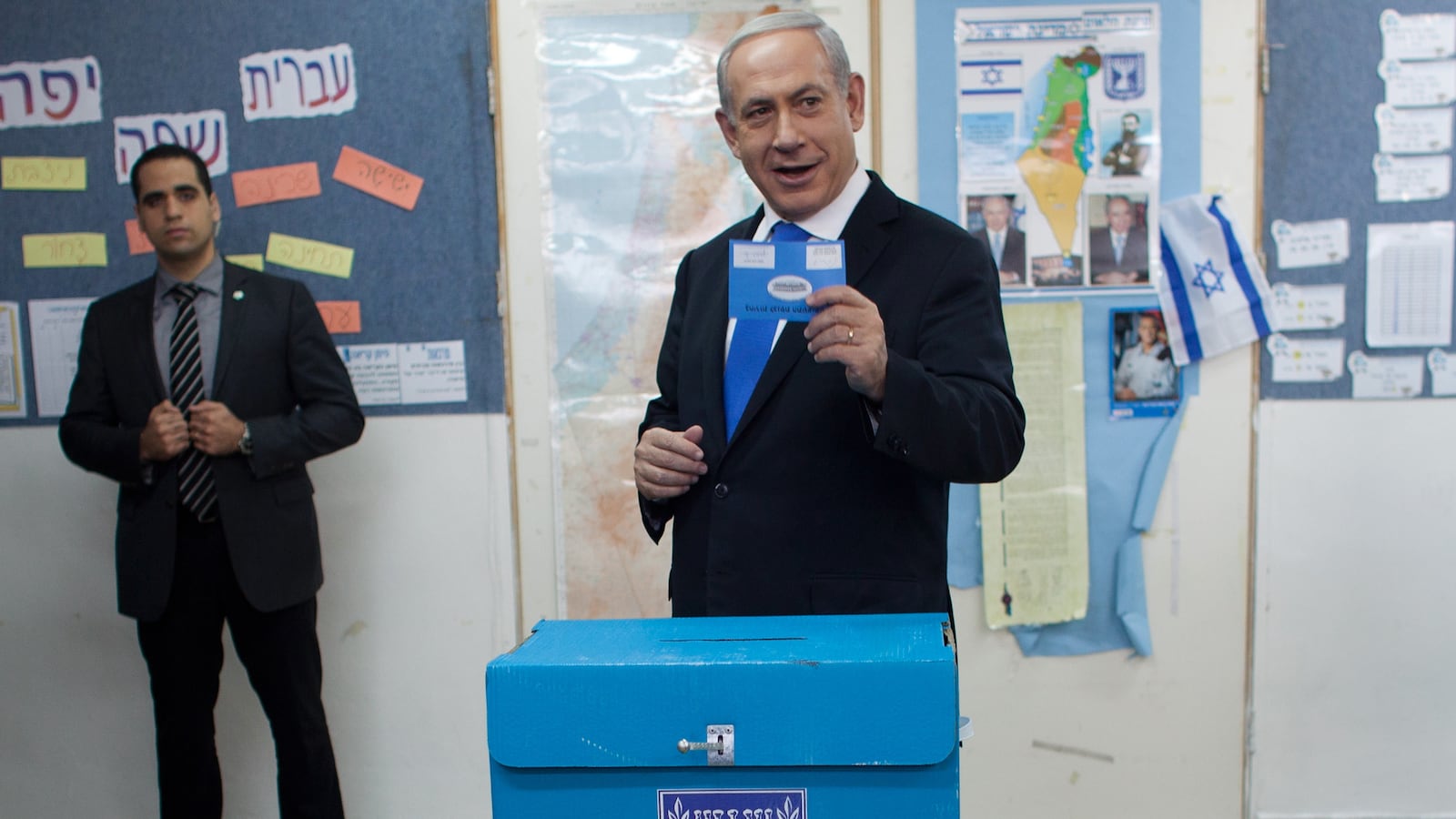The newest poll in Israel after the start of talks between Israelis and Palestinians is out. The Smith survey, reported in Globes, gives Likud 33 seats (up from 31). It also gives Labor 18 mandates (up from 15), Meretz 10 (up from 6), and Shas 11 (the same as it currently holds). The Hebrew version of the story adds that Jewish Home gained one mandate, from 12 to 13.

The obvious takeaway is that the Israeli public is very interested in peace talks; support for parties seen as promoting or talking about them do best. This tracks with recent polls giving parties on the left more seats than they have right now, and it supports the argument that domestic politics in Israel are conducive to a sustained push at genuine negotiations. Coming after the burst of discussion about a national referendum on a final peace treaty, the results are also in line with analysis that the population supports both a referendum and a “yes” outcome.
The survey also has Yesh Atid dropping from 19 to 14 seats. This, too, matches other recent polls. It’s partly the result of public dissatisfaction with Yair Lapid’s role as Finance Minister, which is to be expected under contemporary financial constraints. But it also reflects the historical trend in Israel of new third or centrist parties shining in the moment of a single election and then fading as the glamor wears off. Its voters are moving (back) to Labor and Likud as their traditional role at the center of the political system reasserts itself.
That Likud and Jewish Home gain, however minimally, is also an indication that the Israeli public isn’t going to suddenly tilt completely left in the hawkish-dovish sense. Contrary to popular assumption, the Israeli public doesn’t vote in elections only on the peace process or foreign policy. The political constellation is dotted with a range of parties representing different interests, with overlap between them.
Votes for Likud and Jewish Home represent many things, including belief that Benjamin Netanyahu is the best candidate for prime minister; a preference for a market-oriented economy; a belief that the parties best reflect a growing traditionalism among the Jewish public; a strong connection to Zionism and to the state; and a desire to see some changes (however vaguely conceptualized they are at the public level) to the nature of haredi involvement in the state’s activities.
The gains to leftist and rightist parties, then, reflect the broadness of public opinion in Israeli politics, and the complex interactions between various issues. The peace talks are, at the moment, dominating the public conversation, but Israelis vote on more than just that issue.
The next poll can certainly shift the numbers around, but we can’t analytically escape the Israeli desire for some balance between left and right, anchored by the Likud and Labor parties. This has been evident since at least 1977. While both parties have at times looked as though they might even disappear, it’s clear the population isn’t ready for that just yet.






